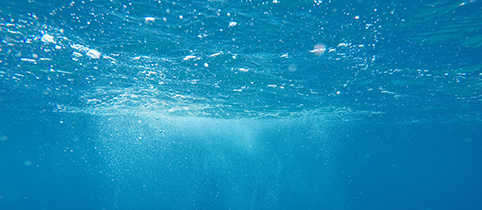WATER TESTING.

Water testing is a crucial process that involves analyzing the quality and safety of water from various sources. It helps ensure that water is suitable for its intended use, whether it's for drinking, industrial processes, agricultural purposes, or recreational activities.
Water is the most important resource we have, and it is vitally important for all of us. So, in many countries, it is the object of numerous environmental laws and regulations. This relates not only to drinking water but ultimately also for the whole water cycle, for example, surface and groundwater, process, and waste water.
Polucon with its wide range of assays in water analysis is your partner for all physical, chemical, and microbiological testing.
Here's an overview of water testing:
- Drinking Water Testing: Testing drinking water is essential to ensure it meets regulatory standards and is safe for human consumption. Parameters like pH, turbidity, total dissolved solids (TDS), microbial contaminants (e.g., coliforms, E. coli), heavy metals (e.g., lead, arsenic), and chemical pollutants are typically assessed.
- Environmental Water Testing: Environmental water testing is performed to assess the quality of natural water bodies like rivers, lakes, and oceans. This helps monitor pollution levels, identify sources of contamination, and protect aquatic ecosystems.
- Groundwater Testing: Groundwater testing is conducted to evaluate the quality of water extracted from wells and boreholes. It ensures that groundwater is safe for drinking, irrigation, and industrial use, and helps detect potential contamination from agricultural runoff, industrial activities, or natural sources.
- Wastewater Testing: Wastewater testing examines the quality of water after it has been used in various processes or discharged from industrial, municipal, or domestic sources. It assesses the presence of pollutants and ensures compliance with environmental regulations before the water is released back into the environment.
- Swimming Pool Water Testing: Regular testing of swimming pool water is vital to maintain safe and hygienic swimming conditions. Parameters such as chlorine levels, pH, total alkalinity, and microbial contamination are monitored to prevent waterborne illnesses and maintain water clarity.
- Agricultural Water Testing: Agricultural water testing is essential for irrigation purposes and to prevent the spread of waterborne diseases on farms. It ensures that water used for irrigation is free from harmful contaminants that could affect crops, livestock, and food safety.
- Industrial Water Testing: Industrial processes often require specific water quality standards to ensure efficient operations and product quality. Water testing helps industries monitor and maintain water quality parameters that are crucial for their processes.
- Recreational Water Testing: Recreational water, such as in beaches and swimming areas, is tested to protect public health and ensure a safe environment for water-based activities. Microbial testing helps detect the presence of harmful pathogens that can cause infections.
Accurate water testing plays a significant role in safeguarding human health, protecting the environment, and supporting various industrial processes. It enables informed decision-making, ensures compliance with regulations, and promotes the responsible use of this precious resource.
Drinking Water
Ground Water
Mineral and table water
Bathing and seawater
Wastewater
Surface Water
Process and Cooling Water
Leachate Analysis
Offshore drinking water
Legionella Testing
Monitoring of industrial sites
Hospital Hygiene
Quality Control
Treatment Plant Monitoring
